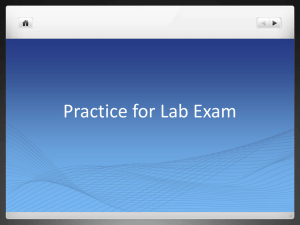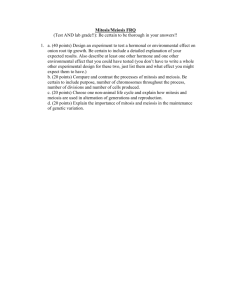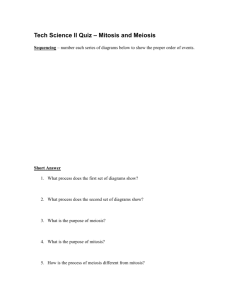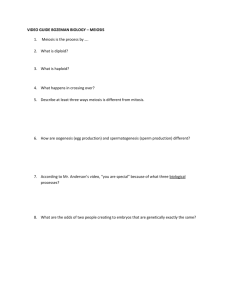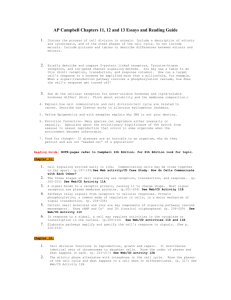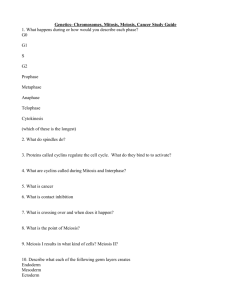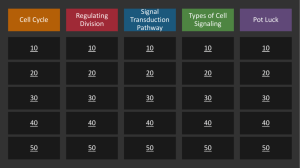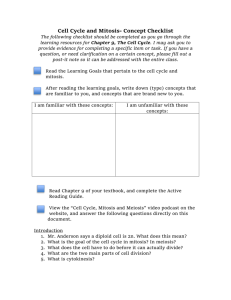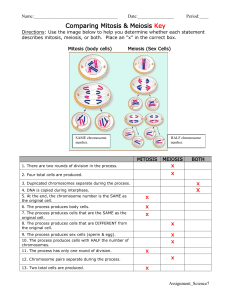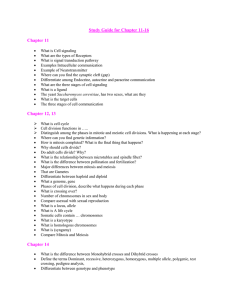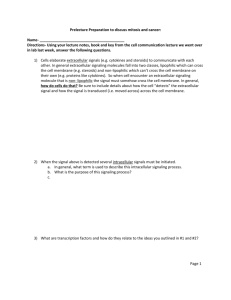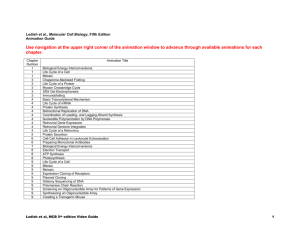AP Biology Worksheet - Moore Public Schools
advertisement
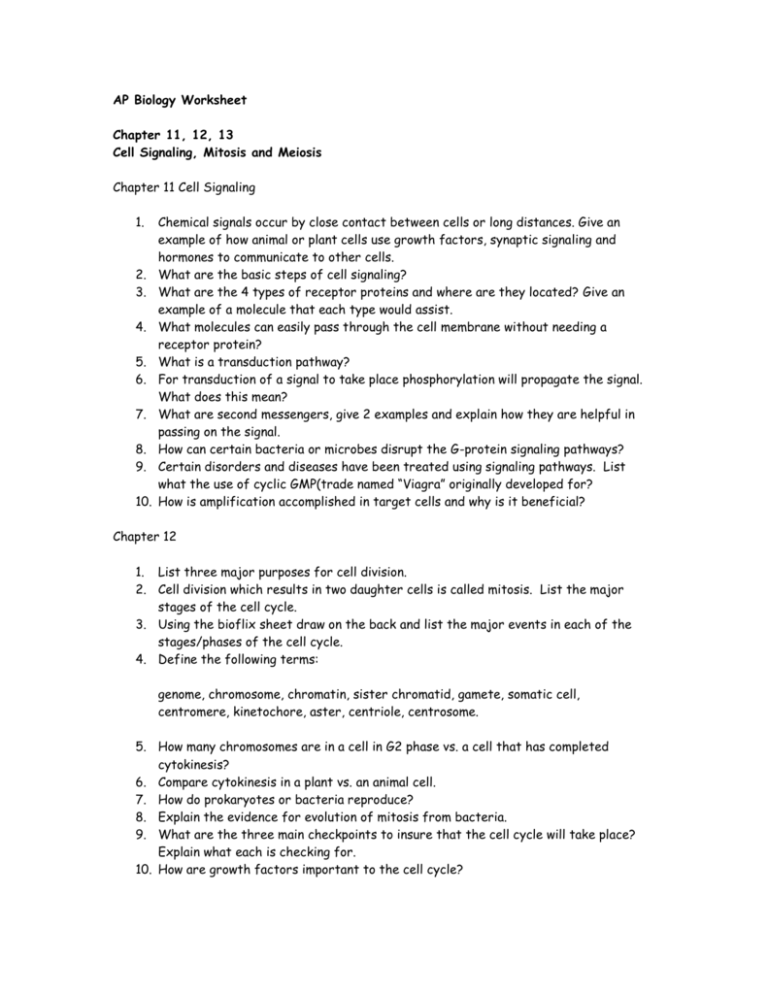
AP Biology Worksheet Chapter 11, 12, 13 Cell Signaling, Mitosis and Meiosis Chapter 11 Cell Signaling 1. 2. 3. 4. 5. 6. 7. 8. 9. 10. Chemical signals occur by close contact between cells or long distances. Give an example of how animal or plant cells use growth factors, synaptic signaling and hormones to communicate to other cells. What are the basic steps of cell signaling? What are the 4 types of receptor proteins and where are they located? Give an example of a molecule that each type would assist. What molecules can easily pass through the cell membrane without needing a receptor protein? What is a transduction pathway? For transduction of a signal to take place phosphorylation will propagate the signal. What does this mean? What are second messengers, give 2 examples and explain how they are helpful in passing on the signal. How can certain bacteria or microbes disrupt the G-protein signaling pathways? Certain disorders and diseases have been treated using signaling pathways. List what the use of cyclic GMP(trade named “Viagra” originally developed for? How is amplification accomplished in target cells and why is it beneficial? Chapter 12 1. List three major purposes for cell division. 2. Cell division which results in two daughter cells is called mitosis. List the major stages of the cell cycle. 3. Using the bioflix sheet draw on the back and list the major events in each of the stages/phases of the cell cycle. 4. Define the following terms: genome, chromosome, chromatin, sister chromatid, gamete, somatic cell, centromere, kinetochore, aster, centriole, centrosome. 5. How many chromosomes are in a cell in G2 phase vs. a cell that has completed cytokinesis? 6. Compare cytokinesis in a plant vs. an animal cell. 7. How do prokaryotes or bacteria reproduce? 8. Explain the evidence for evolution of mitosis from bacteria. 9. What are the three main checkpoints to insure that the cell cycle will take place? Explain what each is checking for. 10. How are growth factors important to the cell cycle? 11. Describe the roles of checkpoints, cyclin, Cdk, and MPF in the cell-cycle control system 12. Describe density-dependent inhibition and anchorage dependence. 13. Explain how abnormal cell division of cancerous cells differs from normal cell division and compare benign tumors to malignant tumors that may metastasize. Chapter 13 14. Explain why organisms only reproduce their own kind and why offspring more closely resemble their parents than unrelated individuals of the same species. 15. Explain what makes heredity possible. 16. Distinguish between asexual and sexual reproduction. 17. Diagram the human life cycle and indicate where in the human body that mitosis and meiosis occur: which cells are the result of meoisis and mitosis and which cells are haploid and which are diploid. 18. Distinguish among the life cycle patterns of animals, plants, and fungi 19. List the phases of meiosis I and meiosis II and describe the events characteristic of each phase 20. Describe the process of synapsis during prophase I and explain how genetic recombination occurs 21. Describe key differences between mitosis and meiosis and explain how the end result of meiosis differs from that of mitosis. 22. Explain how independent assortment, crossing over, and random fertilization contribute to genetic variation in sexually reproducing organisms. 23. Explain why inheritable variation was crucial to Darwin's theory of evolution by natural selection 24. What causes genetic variation?
